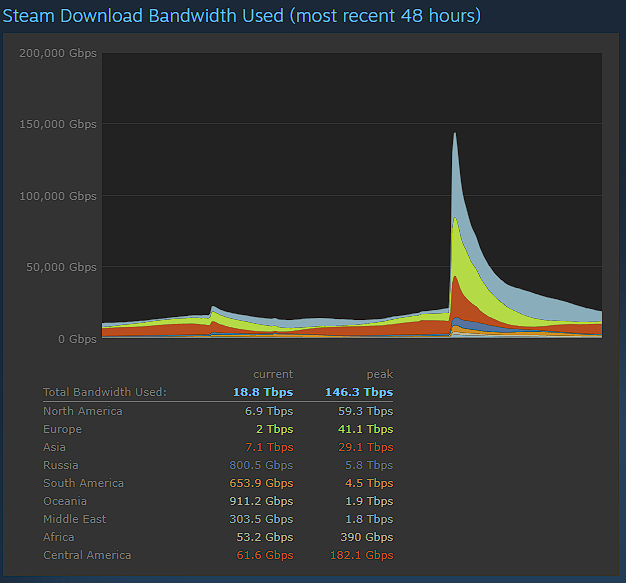this post was submitted on 04 Aug 2023
1464 points (98.8% liked)
Games
35496 readers
2389 users here now

Welcome to the largest gaming community on Lemmy! Discussion for all kinds of games. Video games, tabletop games, card games etc.
Weekly Threads:
Rules:
-
Submissions have to be related to games
-
No bigotry or harassment, be civil
-
No excessive self-promotion
-
Stay on-topic; no memes, funny videos, giveaways, reposts, or low-effort posts
-
Mark Spoilers and NSFW
-
No linking to piracy
More information about the community rules can be found here and here.
founded 2 years ago
MODERATORS
you are viewing a single comment's thread
view the rest of the comments
view the rest of the comments

As in DVDs or Blu Rays?
Computers running for hours just downloading, servers running hot to share the files, extra bandwidth in use - certainly not free.
But in contrast to producing optical media, burning data onto it, printing a cover, sticking it in a plastic box, sticking that plastic box in a larger box with polystyrene peanuts, putting that box with other boxes on a pallet, wrapping them in shrink wrap, flying them across the world, discarding the wrap, breaking down the pallet, driving individual boxes around a region, having an employee come to the store early by car to unload boxes, and have them put individual game cases on display on metal shelves and then lighting and air-conditioning said game cases for a few weeks until they're all sold to customers who drive to and from the store, and then run it on their local computer... Download has got to be more efficient. Certainly when most games then have an update to the disc version already required to download by the time the customer gets home.
The vast majority of the distance covered is using light as the transmission medium, so we can't really get much more efficient than that.
Just a note that commercially produced disks aren't burned they're pressed. I'm not sure which is better environmentally however.
This guy life cycle analysis